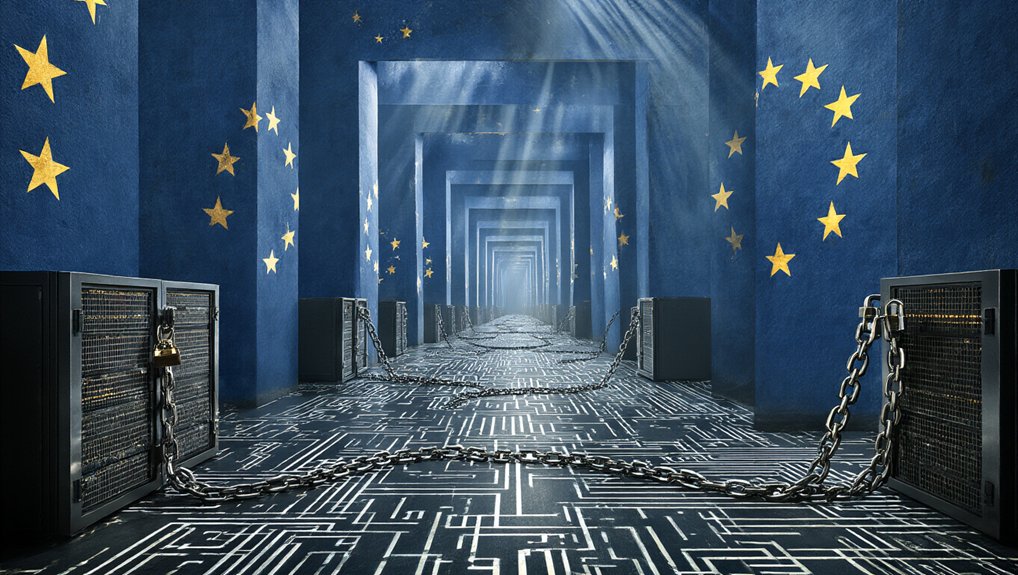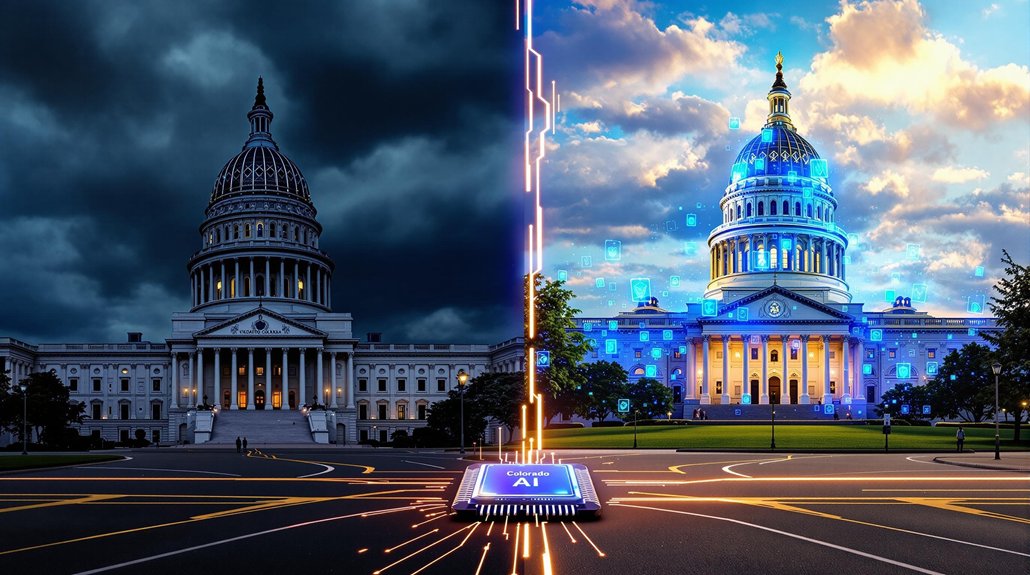The European Union just threw a massive regulatory wrench into the AI machine. The world’s first extensive AI regulatory framework is officially rolling out, and tech companies worldwide are scrambling to adapt.
Doesn’t matter if you’re based in Silicon Valley or Singapore—if you want access to the EU market, you play by EU rules. Period.
The regulations are hitting in waves. Phase 1 kicked off February 2, banning the scary stuff like cognitive manipulation and social scoring systems.
EU regulations already ban the worst AI offenders—no mind games or citizen scoring allowed on European soil.
Phase 2 arrives August 2, targeting the big boys like ChatGPT, Claude, and Google’s models. European companies begged for more time. The EU said no. Tough luck.
The rules create a risk-based hierarchy that’s pretty straightforward. Unacceptable risk? Banned. High risk? Conform or get out. Limited risk? Tell people they’re talking to a robot. Minimal risk? Carry on.
It’s not rocket science, but it is regulatory science—and compliance won’t come cheap.
General purpose AI providers face the heaviest burden. They’ll need to document everything—training data, model capabilities, potential risks.
Used copyrighted material for training? Better disclose it. System glitched and caused problems? Report it immediately. Got a super-powerful model that could affect critical infrastructure? Prepare for extra scrutiny and independent evaluation.
Big Tech isn’t thrilled. Companies now face a painful choice: create EU-specific models or make global models that comply with EU standards.
While other nations explore their own approaches, the EU’s leadership on ethical frameworks stands in stark contrast to the fragmented regulatory landscape across the globe.
Either way, it’s expensive. The compliance teams at Google, Microsoft, and Meta must be working overtime right now.
Some industry voices are whining that these rules will crush innovation and put European tech at a disadvantage.
Maybe. But the reality is clear—the regulatory environment for AI just got a lot more complicated, and the companies with the deepest pockets will probably adapt first.
The AI gold rush just got a reality check. Europe’s message to Silicon Valley? Your move.
Non-compliance could result in staggering penalties of up to €35 million or 7% of global annual revenue for companies failing to meet the EU’s requirements.
Non-compliance with these standards could result in fines of up to €15 million or 3% of global turnover starting in August 2026.
References
- https://www.softwareimprovementgroup.com/eu-ai-act-summary/
- https://www.velaw.com/insights/build-once-comply-twice-the-eu-ai-acts-next-phase-is-around-the-corner/
- https://www.europarl.europa.eu/topics/en/article/20230601STO93804/eu-ai-act-first-regulation-on-artificial-intelligence
- https://digital-strategy.ec.europa.eu/en/policies/regulatory-framework-ai
- https://artificialintelligenceact.eu









